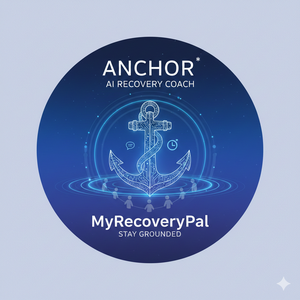
Everybody’s Rock Bottom Is Different — Here’s What Your Worst Moment Can Teach You
Your “Bottom” Is Unique — Yet Universally Transformative
We all have that moment we call “rock bottom,” but for each of us it looks different. Maybe it was driving home from your kid’s soccer practice with a DUI. Maybe it was waking up on a stranger’s couch with no memory of how you got there. Or maybe it was the phone call from HR: “We’re sorry, but we have to let you go.”
Regardless of the specifics — big or small, dramatic or quiet — your bottom is the single worst moment in your life to that point. And while it feels like the end of your story, those low points are actually the launching pad for something far more beautiful.
Below, you’ll find a collection of “bottom” moments from real people in recovery, woven together to reveal five universal truths. These truths show how your darkest hour can become the foundation of a life you’re proud to live.
Truth #1: Clarity Arrives with Crisis
“My wake-up call came at 3 a.m. when I realized I had no idea where my next paycheck was coming from.”
— Sarah, 4 years sober
When your world unravels — bills unpaid, relationships frayed, personal safety on the line — there’s no more room for denial. In that stark moment, you see exactly what you’re facing and what you must change. Sarah’s 3 a.m. epiphany stripped away every excuse she’d clung to. Suddenly, she knew that if she didn’t act, the next morning might not come.
Why It Matters:
Crisis-induced clarity cuts through rationalization. Neuroscience tells us that high-stress moments can spike neurotransmitters like dopamine and norepinephrine, sharpening focus. In recovery, this “focus spike” becomes the catalyst for lasting change.
Action Step — Build Your “Wake-Up” List:
- Write Down Your Bottom Moment: Detail the crisis — what fell apart, how you felt.
- Identify the Absolute Truth It Revealed: e.g., “I cannot manage my drinking,” or “I need help right now.”
- Display It Visibly: Post it on your bathroom mirror or set a daily phone reminder. Each glance will rekindle that urgency, keeping you focused on recovery rather than excuses.
Truth #2: You’re Stronger Than You Think
“I had convinced myself I couldn’t survive a single day without a drink. Then I woke up on the floor and realized I had made it through.”
— Marcus, 2 years sober
Marcus’s story is pure resilience in action. Before his bottom, he doubted he could last a single sober dawn. But each morning he woke up clear-headed, he discovered an untapped well of strength — and with every sunrise, his confidence grew.
Why It Matters:
Survival instinct is powerful. Psychologists call it “post-traumatic growth,” where individuals report positive psychological change after facing adversity. Realizing, “I made it through that hellish night” rewires your belief: “I can handle today’s challenges too.”
Action Step — Track Your Survival Wins:
- Daily Check-In: Each morning, note one recovery “milestone” — however small (e.g., “I stayed sober through my argument,” “I resisted the urge at lunch”).
- Build a Confidence Log: Keep these notes in a dedicated journal or digital app. When doubt creeps in, flip through past wins and remind yourself, “I’ve done hard things before.”
- Share Your Story: Tell a trusted friend or sponsor about one victory each day. Verbalizing your survival cements the truth that you’re stronger than any craving.
Truth #3: Community Is the Glue That Binds Your New Life
“I thought pride meant going it alone, until I saw my neighbor knock on my door with coffee and a listening ear.”
— Priya, 5 years sober
Priya learned that real strength comes from connection. When you’re at your lowest, having someone who cares enough to show up — even with a simple cup of coffee — can make the difference between relapse and resolve.
Why It Matters:
Research in Alcoholism Treatment Quarterly shows that strong social networks correlate with a 50% reduction in relapse risk. Community doesn’t just offer accountability; it provides empathy, perspective, and the reminder that you belong somewhere.
Action Step — Expand Your Circle of Trust:
- Map Your Support Network: List current allies — family, friends, sponsors — and identify at least two new sources of support (e.g., faith group, sober meetup, online forum).
- Schedule Regular Check-Ins: Set weekly calls or coffee dates. Put them on your calendar as unbreakable commitments.
- Give Back: Offer to listen when someone else is struggling. Reciprocity strengthens bonds and reminds you that recovery is a two-way street.
Truth #4: Humor Heals — Even When You’re at Your Lowest
“Recovery is an acceptance that your life is in shambles, and you have to change it.”
— Jamie Lee Curtis
Jamie Lee Curtis nails the paradox: things feel so broken they’re absurd. Embracing that absurdity through humor doesn’t minimize your pain — it humanizes it. Laughing at your past foibles lightens shame’s weight and reminds you that, no matter how bad things were, you’re still here to tell the tale.
Why It Matters:
A Journal of Positive Psychology study found that humor interventions — like watching a funny video or sharing jokes — lower stress hormones and boost mood, making you more resilient in the face of triggers.
Action Step — Inject Laughter into Your Day:
- Daily Dose of Funny: Subscribe to a recovery comedy podcast (e.g., “Two Sober Dudes”), or follow a humorous sobriety meme account.
- Share a Smile: Forward a funny clip or inside joke to a recovery buddy. Laughter shared strengthens camaraderie.
- Write a “Guilty Laugh” Entry: In your journal, jot down one ridiculous thing you did in addiction and why it’s funny in hindsight. Reframing past mistakes as something you overcame turns shame into strength.
Truth #5: Growth Often Comes From the Ashes of Loss
“Not until we are lost do we begin to find ourselves.”
— Henry David Thoreau
Thoreau’s insight rings true for anyone who’s bottomed out. When everything you thought defined you falls away — job title, social status, old routines — the blank slate forces you to ask, “Who do I want to become?”
Why It Matters:
Studies on post-traumatic growth show that individuals who actively process loss — through reflection, goal-setting, and creativity — emerge with deeper purpose and resilience. Your bottom is not just an end; it’s the fertile soil from which a new, stronger self can sprout.
Action Step — Plant Your Seeds of Renewal:
- Identify One New Direction: Choose an area to reinvent — health, career, relationships, or a creative passion.
- Set a Tiny First Step: If it’s health, commit to a five-minute morning stretch; for career, research one free webinar; for creativity, sketch for three minutes.
- Celebrate Each Seedling: Track your growth in a “New Beginnings” journal. Small sprouts — an extra push-up, a completed webinar, a finished sketch — signal that transformation is underway.
Your Turn to Forge Strength from Loss
Losing everything can feel like a catastrophe — or a second chance. The difference lies in how you lean into the wreckage and gather the pieces. When you reclaim clarity, discover hidden strength, build a supportive community, embrace humor, and plant new hopes, you don’t just survive — you thrive.
What truth did your rock bottom reveal? Share in the comments below — your story just might light the way for someone else.
🙏 If this resonated, please 👏 clap, comment, and hit Follow for more on Normalize Sobriety!

Comments (0)
Login to leave a comment.
No comments yet. Be the first to share your thoughts!